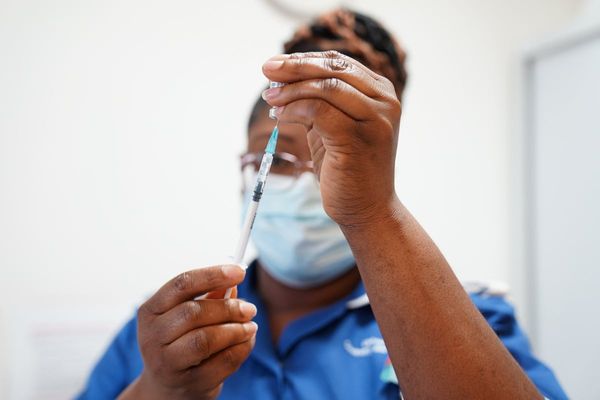
Hotels and homeowners are calling in specially trained dogs to sniff out bedbugs that can lurk in cracks and crevices in bedrooms amid concerns that infestations are on the rise in the UK.
The spread of bedbugs declined during the Covid crisis as hotels closed and travel ground to a halt but, since the world reopened, dormant populations have begun to bounce back, if not yet to the level reached before the pandemic.
While the rise has prompted a wave of revulsion – and occasionally trauma for those affected – it has proved a mini-boom for specialist UK firms that deploy trained sniffer dogs to detect the infestations everywhere from private homes to five-star hotels.
Gary Jakeman, the chief executive of K9 Detection Services in Solihull in the West Midlands, has two trained springer spaniels, Milo and Kobie, whose services are increasingly sought after by hotel owners and individuals who suspect the bugs have gained a foothold on their premises.
“We’re getting more and more interest. We’ve probably had a 25% increase in callouts since June,” said Jakeman. “These dogs are spot on. There’s very little that can get past a well-trained nose.”
It can take a year to 18 months to train a new dog to sniff out bedbugs. The process mirrors the approach used in training dogs to smell drugs, explosives and stashes of money. In the case of bedbugs, the dogs detect a pheromone the insects emit to help them group together.
“In very high concentrations, you can smell it yourself,” said Dr Richard Naylor, the director of the Bed Bug Foundation, which provides information on the insects and works with canine training schools to certify dogs for bedbug detection. “They produce a very pungent, recognisable smell.”
The insects rarely stray more than a metre from where they feed and so are often found near the head of the bed, but it can take hours to find them armed with only a torch and good eyesight. Trained dogs can find them, or rule them out, within minutes, Jakeman says.
The most common sign of bedbugs are bites which, in people who react to them, can swell and become itchy. But specks of bedbug poo or blood on the sheets are other signs of an infestation. The insects themselves might not be found without taking a bed apart and inspecting all the joints and recesses. “We’ve found them in TV remote controls and plug sockets before,” said Jakeman.
Though physically harmless, an infestation can be traumatic. “The mental health implications can be devastating,” said Naylor.
“It isolates people. They feel shame because people falsely associate them with poor living conditions. People don’t go and see their friends, and they don’t want friends to come to them. People become sleep deprived because they sleep with the lights on. It can have a lasting effect: people can feel things crawling on their skin long after the bugs have gone.”
Brian Leith, who runs BDL Canine Services in South Lanarkshire, works with Benji, a springer-cocker spaniel mix. If a hotel receives a complaint about bedbugs, the pair will check the room in question and half a dozen nearby. “It’s nothing to do with dirty houses at all,” he said. “I’ve been in five-star hotels that have got them.”
While records point to a real rise in bedbugs, caused by travel, a growing resistance to insecticides and people buying secondhand furniture, the sharper rise in complaints may be fuelled by the media’s fascination with the bugs and an overreaction to sightings in France.
“People see the press and panic,” said Leith, who did two inspections on Saturday which found no evidence of bedbugs. “I’m not going to complain. It’s good for business.”
Naylor suspects cases will have returned to pre-pandemic levels within a couple of years, but another wave of worried callouts may be on the horizon, according to Jakeman.
“A lot of the time when we are called out there are no bedbugs there,” he said. “There is definitely a rise, but it’s intensified because of the fear people have. I think it’ll go berserk when the Rugby World Cup finishes and people return from France.”







